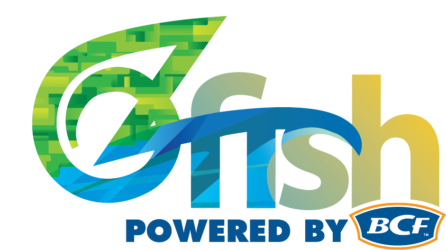Corporate Day at OzFish Central Moreton Bay Chapter
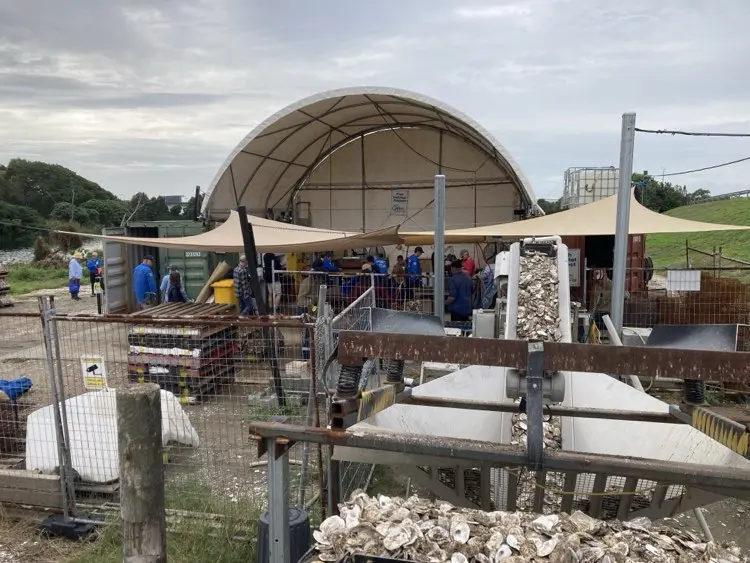
Opportunities exist for organisations to arrange a team building working bee at the Moreton Bay Shellfish Reef Restoration site, Oysterworld, located at Port of Brisbane.
Bring your team for a day of team building that can help create healthier waterways and healthier fish – and healthier teams!
Participants will help in the construction of items that aid in supporting baby oysters (spat) and restoring the bay.
They will also foster a greater understanding of and appreciation for marine ecosystems, particularly the significance of shellfish in maintaining ecological balance, and build skills, and team spirit.
Team-building skills
These sessions enable you to help individual employees invest and work in a cohesive group that shares purpose and achievements.
In an effective team, every member feels that their input is valued and that they have influence when creating goals and developing plans for accomplishing them. Some of the skills your team may use during the day include:
| Delegation | Motivation | Teamwork | Leadership |
| Problem Solving | Communication | Reliability |
The structure of the day
Typically, the corporate working bee day starts with an overview of the Reef Restoration Project, followed by a site induction. The day can then be structured as required for your needs, including for breaks and lunch.
Please speak to OzFish about your requirements. Our wish is that the ultimate experience will have you and your team leaving with a smile on your face and a sense of accomplishment.
The work area
The work area is divided into 5 sub-areas for the construction of Robust Oyster Baskets (ROBs).
- Guillotine – cutting wire sheets into lengths or end triangles for the construction of ROBs.
- Bending – wire lengths are bent into a triangle shape.
- Clipping – the bent triangle and a triangle end are clipped together to form the permanent shape.
- Filling – the empty ROB is filled with washed oyster shell and a triangle end clipped to enclose the final ROB.
- Storage – the filled ROBs are loaded onto a pallet and moved to the storage location.
Other innovative designs that might be constructed and filled include Quilted Oyster Doonas (QODs) or Biodegradable EcoSystem Engineering (BESE Bags).
What are ROBs?
ROBs are a groundbreaking advancement in the restoration of shellfish reefs, a vital ecosystem component. These innovative structures provide homes for countless marine creatures and play a crucial role in filtering our waters, enhancing biodiversity, and fostering sustainable food sources for fish populations.
By facilitating the transfer of used oyster shells to OzFish sites, the ROBs enable volunteers to participate in reef restoration efforts without the need for heavy machinery, making the process accessible to all.
Constructed from degradable steel mesh, the ROBs are filled with recycled oyster shells that dedicated volunteers clean at shell recycling centres. This sustainable approach not only repurposes waste but also contributes actively to environmental conservation.
The steel mesh is designed to degrade over 2 years, allowing ample time for oysters and other shellfish to clump together and establish their communities before the structure completely rusts away. What remains after this degradation process is a robust assembly of oyster shells and living shellfish, creating a new habitat for marine life.
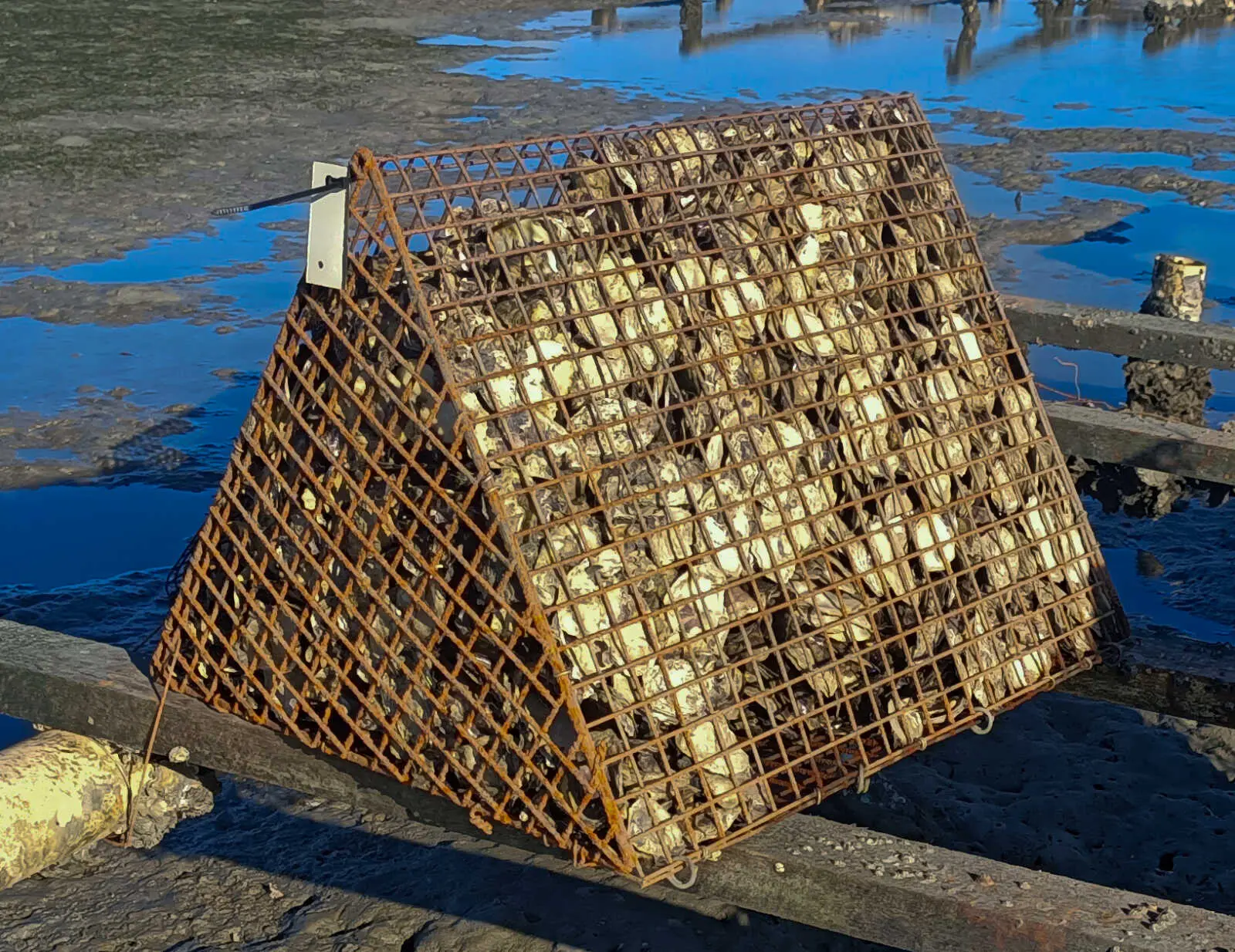
What are BESE bags?
Biodegradable EcoSystem Engineering Bags are crafted from a unique biopolymer derived from potato waste starch. They are an environmentally friendly alternative to conventional plastic mesh.
BESE bags are biodegradable and lightweight, and offering advantages over ROBs. The ROBs, while effective, are heavier, more expensive, and more difficult to construct.
As the oyster spat (baby oysters) settle into the recycled shells within the mesh, the bags gradually decompose. This natural breakdown process contributes to the creation of thriving reef ecosystems, supporting various marine life forms and promoting biodiversity in coastal areas.
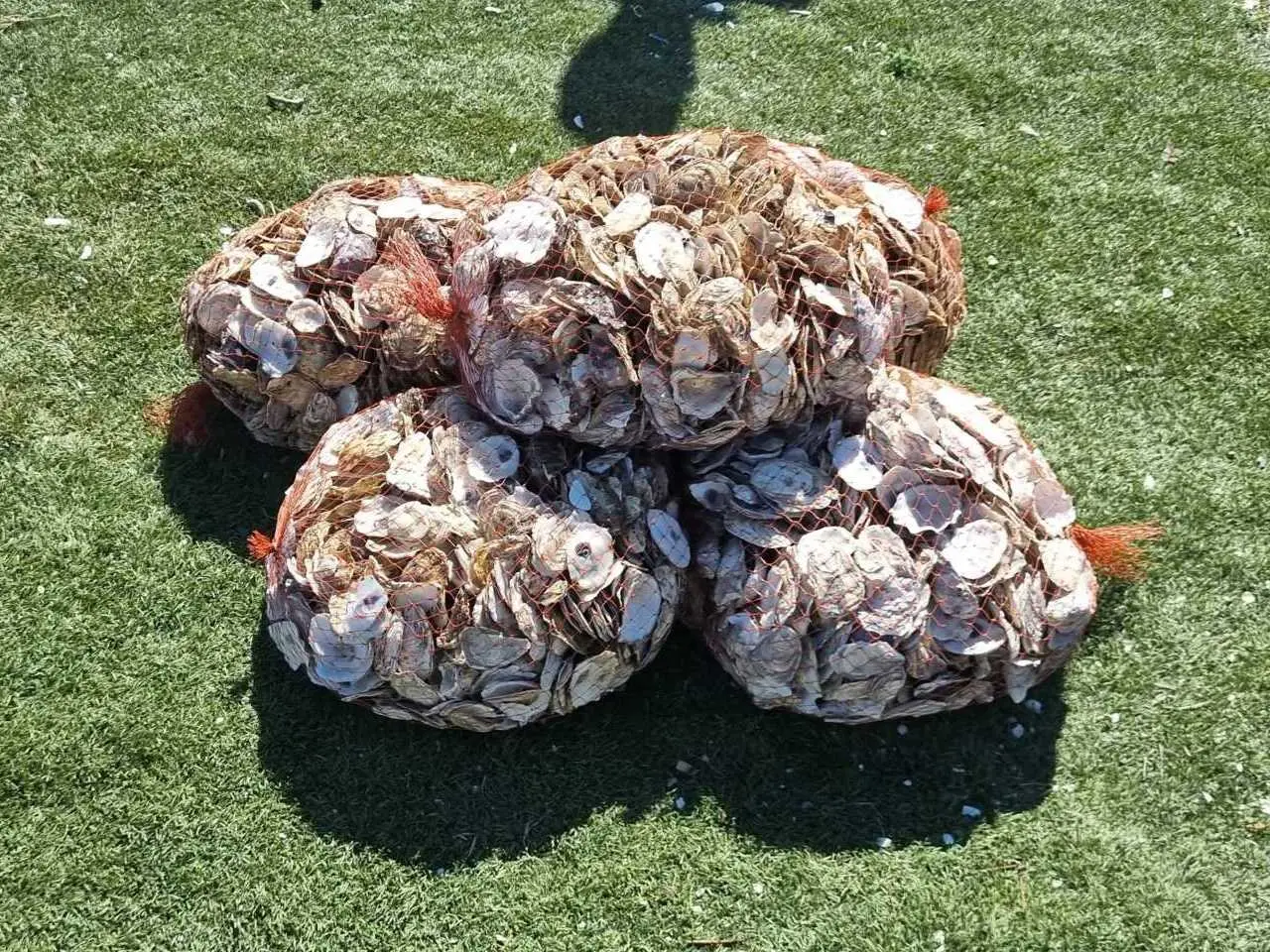
What are QODs?
Quilted Oyster Doonas use a non-degrading, flexible gabion blanket that incorporates recycled oyster shells. The doonas can be securely attached to rock walls, eroding banks, and urbanised waterways, helping them transform into vibrant and living seawalls.
Central to the QOD’s efficacy is its incorporation of recycled and sanitised oyster shells. With their intricate chemical composition, these shells act as a magnet for spat, fostering an optimal substrate for young shellfish, creating an inviting environment for shellfish to settle and grow.
This promotes the establishment of thriving reef ecosystems and gives plenty of overhanging spaces for invertebrates – such as sponges, limpets, crabs and worms – to hide in.
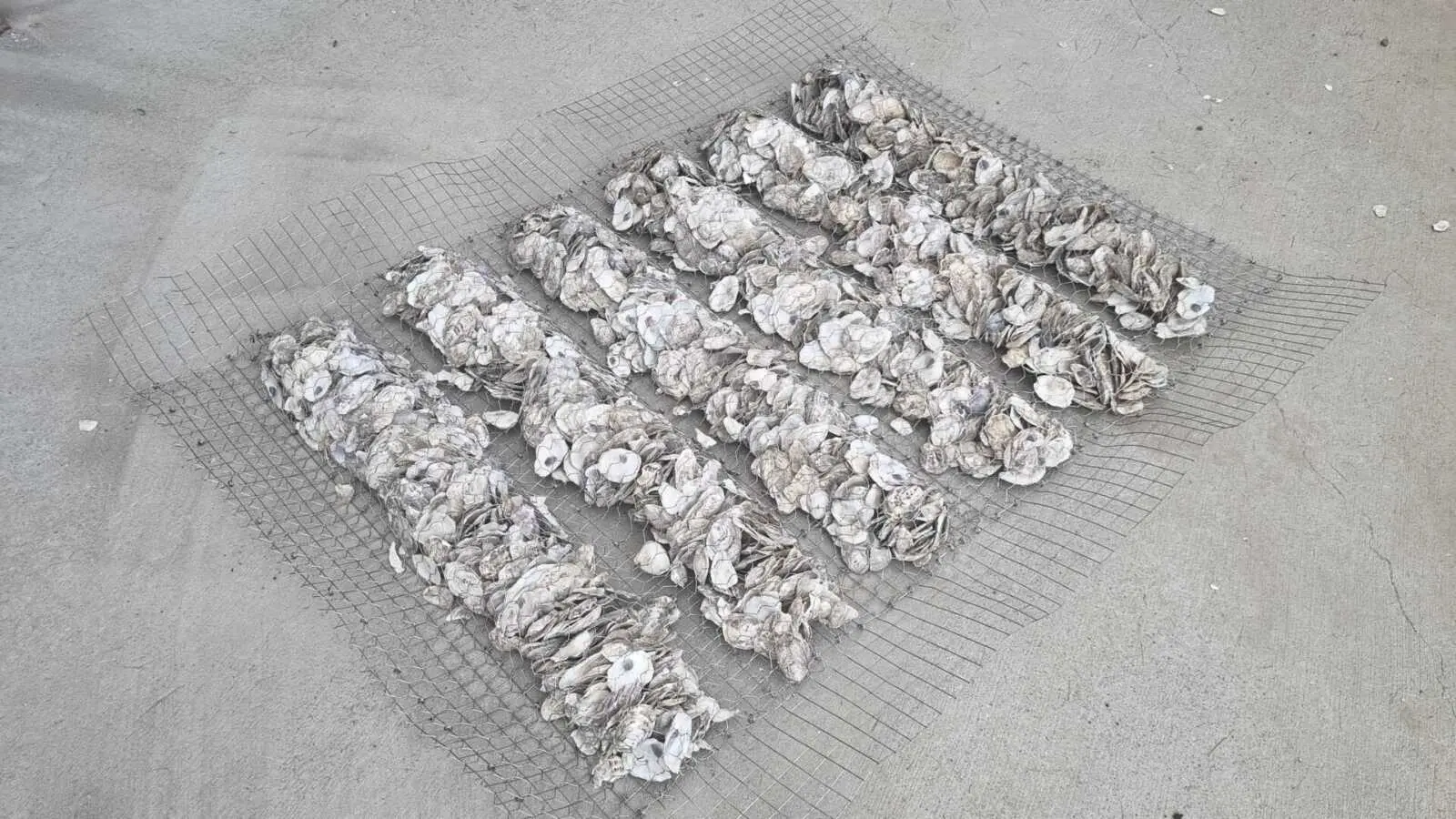
Safety is the foremost priority
To ensure a secure environment, we have a certified First Aid Officer present on site for each working bee. They are equipped with the knowledge and skills necessary to respond to any medical emergencies that may occur, and to provide assistance and care.
Personal protective equipment (PPE) is supplied, that includes eye and ear protection, gloves and aprons.
More information
The Moreton Bay Shellfish Reef Restoration Project has established partnerships with a variety of entities, such as corporations, universities, community organizations, and philanthropic foundations. These collaborations have broadened our influence and objectives. Each partner is dedicated to environmental conservation and the rejuvenation of shellfish reefs in Moreton Bay. The commitment of individuals from diverse backgrounds drives our restoration endeavours.
